How to Address Employment Gaps During the Interview Process (Top 3 Tips)

As Seen In:




Taking a career break isn’t uncommon- whether it’s for personal growth, caregiving, pursuing education, or dealing with unforeseen challenges. But when it comes to job searching, these gaps can sometimes feel like roadblocks. The truth? They don’t have to be. By addressing them with confidence and strategy, you can shift the focus to your skills, accomplishments, and readiness to succeed in your next role.
Key Takeaways
- Gaps in your resume are more common and accepted than ever before.
- Being honest and framing the gap positively can reassure employers.
- Highlighting transferable skills and growth during the gap is essential.
Why Employment Gaps Aren’t Dealbreakers
Gone are the days when hiring managers saw gaps as red flags. Today’s workforce landscape is evolving, and so is the way employers view career journeys. Many hiring managers now understand that life is unpredictable, and career breaks often happen for important reasons—be it caregiving, personal development, or facing life’s curveballs.
Rather than penalizing candidates for these breaks, employers increasingly value the qualities gained during those times. Authenticity, resilience, and adaptability have become critical traits for thriving in fast-paced, ever-changing work environments. Your break is not just a “pause”; it’s a chapter that can highlight your ability to navigate challenges, prioritize effectively, and grow as a professional.
✨ Tip: Take time to reflect on your break and identify the skills you’ve gained, even if they aren’t from traditional work experience. Did you strengthen your communication skills while managing family dynamics? Did you develop self-discipline during a career pivot or educational pursuit? Recognizing these accomplishments will boost your confidence and allow you to present your gap as a valuable growth period during interviews.
Changing Perceptions of Career Gaps
Hiring managers and recruiters are increasingly aware that career gaps are often not the result of a lack of effort or ambition. Life events, personal challenges, and external circumstances can cause breaks in employment, and many employers now view these periods as opportunities for candidates to demonstrate personal growth. Whether you took time off for travel, caregiving, or pursuing additional education, these experiences can show that you are adaptable, resourceful, and resilient—qualities that employers value highly.
💭 For example, a gap taken for caregiving could demonstrate strong emotional intelligence and time management skills, while a period of travel could showcase global awareness and adaptability. Even a break to pursue hobbies or self-care might reflect that you understand the importance of balance and mental health—traits that can ultimately lead to greater productivity and longevity in the workplace.
1. How to Address Career Gaps with Confidence
When it comes to addressing employment gaps, the first step is to decide how you’ll explain them on your resume or during an interview. Honesty is essential, but how you frame your time away from work can make a significant difference in how hiring managers perceive it.
Be Transparent but Professional 💬
While it’s crucial to be upfront about the gap, it’s equally important to keep your explanation concise, positive, and focused on how the time away contributed to your personal and professional growth. Here’s how to structure your explanations:
For caregiving:
“I took time to focus on family needs, which allowed me to enhance my organizational and problem-solving skills.”For personal reasons:
“I stepped back to reset and prioritize my goals. This break reenergized me and helped me focus on contributing meaningfully to my next role.”For further education or certifications:
“I dedicated this time to deepen my expertise by completing [specific program/certification], which has made me more equipped to tackle the demands of this role.”
Reframe the Gap as Growth 🌟
Rather than seeing your break as lost time, view it as an opportunity for growth and development. Show how your break enhanced your skill set or helped you gain new insights:
- “During my time off, I took on freelance projects to stay engaged in the industry and sharpen my skills.”
- “I volunteered with [organization], which gave me valuable leadership experience and improved my ability to manage teams and projects.”
By reframing your break as a period of growth, you can shift the narrative from a gap to an opportunity.
2. Highlight Transferable Skills and Achievements
Employers are more concerned with what you can bring to the table than with how long you were away. Be sure to highlight the experiences that kept your skills sharp or enhanced your expertise during your time off.
Volunteer Experience
If you volunteered during your break, showcase how this experience developed transferable skills such as leadership, communication, or project management:
👉 Example: “Managed community outreach programs for [organization], leading to a 25% increase in local participation.”
Freelancing or Contract Work
If you worked independently during your gap, emphasize how you kept your professional skills active and relevant to the industry:
👉 Example: “Developed digital marketing strategies for small businesses, resulting in a 15% increase in online engagement.”
Continuous Learning
Taking courses, certifications, or workshops shows that you stayed dedicated to professional growth. Highlight these initiatives to show your commitment to staying relevant in your field:
👉Example:“Earned a Google Analytics certification, enhancing my ability to make data-driven decisions.”
These experiences, even if not part of a full-time job, demonstrate that you were proactive about your professional development and that you’re ready to apply your new skills.
3. Tailor Your Resume and Interview Approach
How you present your gap on your resume and in your interview can greatly impact how it’s received. By crafting your resume strategically and preparing your interview responses, you can address your gap with confidence.
✅ Functional Resume Format
Instead of focusing on a chronological timeline, a functional resume highlights your skills, achievements, and relevant experiences first. This allows you to downplay the gap while showcasing your strengths. Consider using sections like “Skills and Achievements” or “Professional Highlights” to demonstrate your value.
✨Tip: Looking for some resume guidance? Our professional resume writers and coaches will help you create a functional resume that highlights your strengths and prepare you to confidently address your gap in interviews.
✅ Skill-Based Focus
Create a section dedicated to transferable skills such as project management, leadership, and industry-specific expertise. This allows you to demonstrate that your time away from the workforce hasn’t hindered your ability to perform in the role you’re applying for.
✅ Interview Prep
Rehearse your response to questions about your career gap. Keep your explanation short and focused on how you used your break to learn, grow, or develop valuable skills. By framing your gap as a period of personal and professional growth, you can confidently shift the conversation back to your qualifications and eagerness to contribute to the company’s success.
✨Tip: Need help with interview prep? Our expert interview coaches at ResumeSpice can help you craft confident, concise responses, especially when addressing your career gap. We’ll ensure you’re ready to showcase your growth and qualifications in the best light!
Common Mistakes to Avoid When Addressing Employment Gaps
To ensure your gap doesn’t raise unnecessary concerns, here are some common mistakes to avoid:
🚫 Ignoring the Gap: Trying to hide or gloss over your break may lead to more questions than answers. Be honest and transparent, but keep it focused on the positives.
🚫 Over-explaining: A lengthy or overly detailed explanation can shift the focus away from your strengths. Keep your reasoning concise and maintain a positive tone.
🚫 Underestimating Transferable Skills: Experiences from outside the traditional workforce are still valuable. Whether you were caring for a loved one or taking time to travel, these activities can provide key insights into your character and skills.
It’s completely natural to feel uncertain about explaining an employment gap, but remember: employers today are looking for authenticity, resilience, and personal growth. By framing your career break as a valuable time of learning, you can focus the conversation on what matters most: how you’re ready to contribute and bring value to your next role.
✨Tip: Practice delivering your explanation in a way that highlights your personal growth. Keep it simple and stay focused on the skills and achievements you gained during your break. This will help you come across as confident and ready to take on your next role!
Want a Professional to Help Navigate Your Career Path?
We’re here to support you! At ResumeSpice, we’re more than the #1 rated resume writing service in the U.S.—we’re your career partner. Whether you need personalized interview coaching, LinkedIn profile writing, or resume assistance, our team is ready to help you stand out.
Check out all our career services here, or give us a call at 832.930.7378 to get started today!







